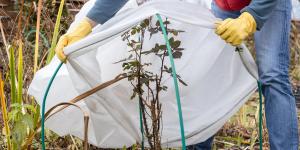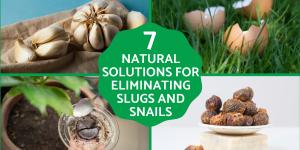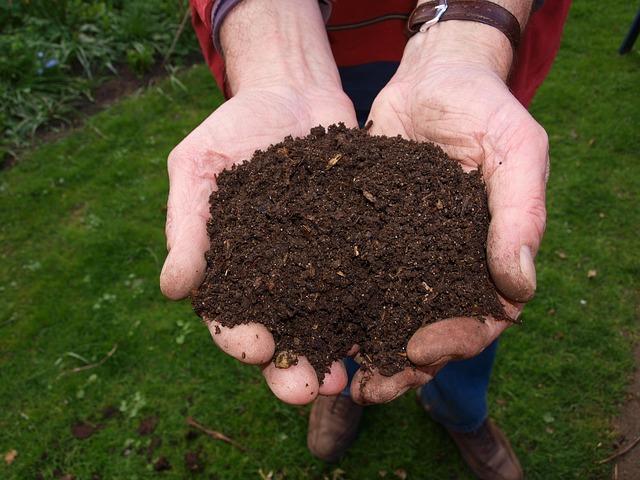Best Homemade Organic Fertilizers for the Garden


Many of us think that starting a homemade fertilizer is only for the serious gardeners among us. Some may also be wary about having to maintain what may be a time consuming and odorous project. In reality, making homemade fertilizer is not only inexpensive and easy, it is one of the best ways to ensure the health of your plants in the home and garden.
At thedailyECO, we provide the 10 best homemade organic fertilizers for the garden. We not only explain what ingredients you should use to add to your fertilizer, but we also explain the best method to create a nutrient-rich and effective natural fertilizer at home.
What is fertilizer?
A fertilizer is a substance which is used to make plants become more fertile. This means they will have a better opportunity to grow, develop and reproduce in many cases. Fertilizer can be made from either organic or inorganic materials. It is this which contrasts it with compost as the latter is only made using organic ingredients.
Managing soils and using fertilizer has been around in some form since agriculture began. It happens in nature since organic matter which perishes will waste through various processes such as rotting. As it does so, the nutrients which are contained within are given back to the earth and help more life to grow.
For home gardening, fertilizer is added to the substrate of various plants to provide them with added nutrition. This substrate is usually soil, although there are various ways for plants to grow. We can commonly find synthetic fertilizer in various forms such a pellets or even in a liquid spray. While synthetic fertilizer can do the same job as an organic fertilizer, there are certain disadvantages in its use.
Why use organic fertilizers instead of synthetic?
There are many advantages of using organic fertilizers and composts. This is true on both a micro- and macrolevel. When used in the agricultural industry, synthetic fertilizers are often more inexpensive and easy to distribute. However, their use on such as large scale can create various issues. This is because synthetic fertilizers:
- Contribute to climate change.
- Can cause contamination in water, soil and rivers as a consequence of the washing effect of the rains.
- Affect plants and nutrients due to excess minerals. This is because synthetic fertilizers are usually very concentrated and when used in excess they can worsen soil quality, instead of improving it.
- Contribute to soil acidification, something which favors desertification (land degradation resulting in arid soil which cannot be used for growth).
- Can cause poisoning when handled without adequate protection.
As we can see, the negatives of using synthetic fertilizer can be incredibly harmful to our environment. They can make large amounts of land unusable and pollute significantly which can impact on climate change[1].
Although we are unlikely to contribute significantly with our own individual use of chemical fertilizers, the collective domestic use of these products does have a significant impact on the issues mentioned above. Although there are certain advantages of using synthetic chemical fertilizers, it is much more ecological to use homemade organic fertilizer. This is because homemade organic fertilizer:
- Reuses material which would otherwise go to waste.
- Reduces our reliance on harmful chemical products which can negatively affect soil quality over time.
- Is high in nutrients for effective plant growth.
- Does not soak in as fast to the soil as synthetic fertilizer, meaning it is less likely to overfeed your plants.
- Saves money as it is essentially free.
- Helps to maintain soil structure and is particularly good for nutrient retention.
We recommend you make your own homemade fertilizer whether you have a garden or need it for indoor plants. Next, we explain the best ingredients for a homemade fertilizer.

Fertilizers and organic fertilizers for plants - the most recommended
The best homemade organic fertilizers are those which use ingredients we can find naturally. Not all of the ingredients which use are found in all homes, but you should be able to compost the following materials to create a safe, cheap and highly effective fertilizer of your own:
Manure
It is undoubtedly one of the best and most beneficial organic fertilizers for your garden soil. Although it can be purchased at gardening stores, if you have chickens, goats or rabbits, you can use their droppings. Rabbit droppings have the highest nitrogen content and can be added directly to the soil, but those of other animals must go through a prior composting process. This is the case with dog and cat feces which is compostable, but requires stricter guidelines for composting.
Banana skins
Bananas have a high potassium content. They are not only highly nutritious for us humans, but they can provide great benefit to your garden or indoor plants. which is very beneficial as a nutrient for our plants. It is particularly beneficial for flowering plants. After eating the fruit, we can use its peel to make homemade compost. You can also add any leftover or waste fruit to making your own homemade organic fertilizer.
Eggshells
Eggshells are very beneficial in the garden as they provide nutrients such as calcium carbonate and serve as a pest repellent. The ideal way to use them in your homemade natural fertilizer is to crush the shells well before adding them to the other ingredients. You can also make a powder by grinding them in a food processor and spread it over the base of the plants directly.
Coffee grounds
After having a cup of coffee, we can take advantage of the coffee grounds to make fertilizer for our plants. They are particularly good at providing high levels of nitrogen which is a very beneficial nutrient to many garden plants. As with eggshells, they can also be mixed directly into the soil or spread on its surface.
Human urine
While we may find it fine to use animal waste as a fertilizer ingredient, some may draw the line at using human waste. However, human urine has a high urea content, meaning it is rich in nitrogen, phosphorus and potassium. Urine is a sterile product as long as the body that produces it is healthy. It can be diluted with water at a 1:8 ratio and added to our homemade fertilizer.
Grass
Once the grass or weeds have been cut, they can be added to our organic fertilizer. They are residues that are very rich in nitrogen and retain some of the nutrients they have absorbed from the same soil on which they have grown.
Fireplace ash
The ashes from the fireplace provide large amounts of potassium and calcium carbonate, ideal for making our home compost. It is important not to apply them directly around acidophilic plants or if the soil is alkaline.
Vinegar
The acetic acid in vinegar is very good for plants that require acidic soil. You can even dilute the vinegar in water and spray it over your plants directly.
Earthworm humus
Also known as vermicast or worm castings, worm humus is one of the best organic fertilizers we can find. It is totally natural and effective for improving the health of plants. This helps them to grow healthy, flourish or bear fruit. Worm humus is only available in forest soils, produced naturally by earthworms that inhabit the earth. However, you can produce a very similar product at home, making or buying a vermicomposter.
Lentils
Lentil sprouts are excellent as fertilizer, especially when rooting. If you want your new plants to best take root in their substrate, do not hesitate to use lentils for your homemade garden compost. The best way to do this is to crush them in water at a 1:2 lentils to water ratio. Leave them to soak overnight and strain the liquid into a suitable container. Spray the liquid as a fertilizer for your plants and add the remaining lentils to your compost. You can also let the lentils srpout first, but this is a more time consuming method.

How to make homemade organic fertilizer for plants step by step
Although some organic waste can be thrown directly into the soil, the ideal way for it to decompose is to follow a series of steps to make a homemade fertilizer or compost. Follow these steps to make an organic fertilizer at home for your garden:
- Drill a few holes on the surface of a container approximately one meter deep (or in a container size according to your needs). Many people use a plastic bin, but do not use a metal one.
- Place soil in the container to about 5 inches depth (or more depending on the container).
- Add organic waste using the best fertilizer ingredients we have detailed above.
- Cover with a little more soil.
- Every so often (approximately two weeks), stir well with a shovel, bringing the remains that are below to the surface and vice versa. This step is important to aerate our homemade compost for fertilizer.
After a few weeks, worms, fruit flies and other insects begin to appear in our compost. This is a sign that the decomposition process is taking place. When the soil takes on a black, lumpy appearance and the organic matter has completely decomposed, it is ready to be applied in the garden or even for use on indoor plants. The smell of the compost should be similar to that of wet earth.
The natural homemade organic fertilizer manufacturing process usually takes around two months if we start in summer and five months if we start in winter. This is because heat favors decomposition of the organic matter. To apply your fertilizer, spread it well around the roots of the plants with the aid of a rake or other instrument.
Before you use the fertilizer, it is important to know the needs of a specific plant. For example, some will need a more or less acidic soil. For this reason, we should test the nutrient and pH levels of our fertilizer with a home testing strip. These can be found at any good gardening store.
Find out some more information about how to care for specific plants with our guide to the best winter outdoor plants for pots.

If you want to read similar articles to Best Homemade Organic Fertilizers for the Garden, we recommend you visit our Gardening category.
1. Guo, Y., & Wang, J. (2021). Spatiotemporal Changes of Chemical Fertilizer Application and Its Environmental Risks in China from 2000 to 2019. International journal of environmental research and public health, 18(22), 11911.
https://doi.org/10.3390/ijerph182211911







